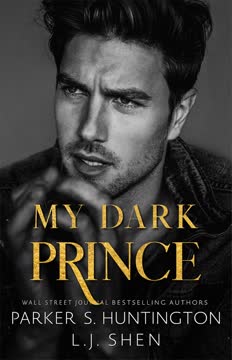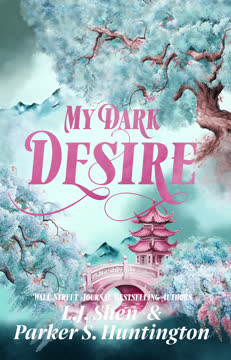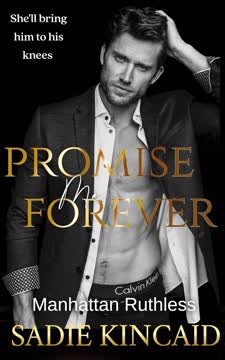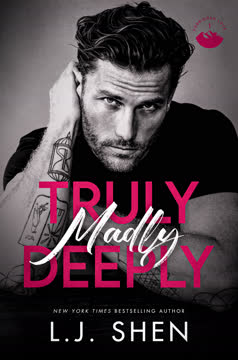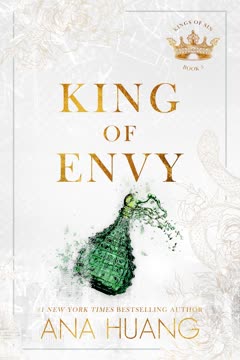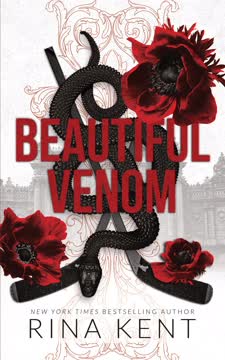Plot Summary
Shadows and Blue Roses
Briar Rose Auer grows up in the shadow of her wealthy, emotionally distant parents, always feeling like an afterthought. Her only solace is the annual summer in Switzerland, where she waits for her best friend, Oliver von Bismarck, to arrive. Their friendship is her lifeline, and every year he greets her with a blue rose—a symbol of hope and the love she desperately craves. But beneath the glittering surface of aristocratic parties and lakeside castles, Briar aches for belonging, for a home, and for someone to truly see her. Oliver is that person, but he is also the beginning of her heartbreak.
Summer's Last Innocence
As teenagers, Briar and Oliver's bond intensifies. They share secrets, laughter, and the ache of being outsiders in their own families. One magical summer, their friendship teeters on the edge of something more. A stolen dance, a forbidden kiss, and the promise of forever. But the world is not kind to dreamers. Briar's parents announce she will be left at a Swiss boarding school, abandoned yet again. Oliver, her anchor, swears he'll always be there for her. Their first kiss is both a beginning and a warning: love, for them, will never be simple.
The Night of Truths
During a clandestine midnight adventure, Briar and Oliver overhear a conversation that changes everything. Briar learns she is the product of her mother's affair; the man she calls father is not her biological parent. The revelation is a wound that never quite heals. In the darkness, Oliver kisses her to keep her from crying out, and their lips seal a pact of pain and longing. That night, innocence is lost—not just to love, but to the knowledge that family can be a lie.
Broken Promises, Broken Hearts
Briar is left at boarding school, her parents gone to another continent. She is alone, bullied, and forced to grow up too soon. Oliver promises to write, to call, to never leave her. But as the years pass, distance and secrets grow between them. When tragedy strikes Oliver's family—his brother Sebastian is horribly injured in a boating accident—Oliver is consumed by guilt and grief. He withdraws from Briar, breaking his promise and her heart. She is left to pick up the pieces, learning that sometimes, the people you love most are the ones who hurt you the deepest.
Boarding School Exile
At Surval Montreux, Briar is an outcast. Her intelligence and sensitivity make her a target, and her parents' abandonment is a wound the other girls sense and exploit. She survives by building walls, turning her pain into armor. She dreams of a future in America, of friends who are family, and of a love that doesn't leave. The blue roses Oliver once gave her become a symbol of what she's lost—and what she still hopes for.
The Kiss That Changed Everything
When Oliver returns for one last summer, he and Briar finally give in to their feelings. They make love for the first time, a moment of beauty and vulnerability. But happiness is fleeting. Oliver is called home, and in the aftermath of his brother's accident, he disappears from Briar's life without explanation. She is left with only memories and the ache of abandonment, convinced she was never enough.
Ghosts in the South Wing
Years later, Briar returns to Oliver's world, now a successful intimacy coordinator in Hollywood. She is drawn back into his orbit when a work assignment brings her to his hotel. Their reunion is electric, but the past haunts them both. Oliver's brother Sebastian lives as a recluse in the south wing of the family mansion, his face and spirit shattered. The house is full of ghosts—of love lost, of promises broken, of the family they both longed for but never had.
The Years Apart
Briar builds a life for herself in America, forging a career and friendships that are chosen, not inherited. She changes her name, determined to be more than the sum of her traumas. Oliver, meanwhile, becomes a notorious playboy, hiding his pain behind scandal and excess. Both are haunted by what might have been, but neither knows how to bridge the chasm between them.
Reunion at the Grand Regent
A chance encounter at the Grand Regent Hotel throws Briar and Oliver together again. The chemistry is undeniable, but so is the anger. Briar pretends not to know him, determined to protect herself. Oliver is desperate to explain, but guilt and secrets hold him back. Their friends and families are drawn into the drama, each with their own agendas and wounds. The game of pretend becomes a battle of wills, with love and hate inextricably entwined.
The Game of Pretend
Circumstances force Briar and Oliver into a charade: a fake engagement to appease family, friends, and the world. What begins as a ruse becomes a crucible for their unresolved feelings. Old wounds are reopened, and new ones are inflicted. As they navigate the minefield of their shared history, they are forced to confront the truth: sometimes, pretending is the only way to survive.
Memory's Cruel Return
A freak accident leaves Briar with amnesia, erasing the last decade of her life. Oliver becomes her caretaker, torn between hope and dread. As her memories return in fragments, so does the pain. The truth about their past—about Sebastian, about the lies, about the love that never died—comes crashing down. Both must decide if forgiveness is possible, or if some wounds are too deep to heal.
The Truth About Family
Briar finally learns the full story of her parentage, confronting her mother and the man who might be her real father. She discovers that family is not defined by blood, but by love and loyalty. Oliver, too, must reckon with his own family's failures and the burden of guilt he carries for Sebastian's fate. Together, they begin to build a new definition of home.
Healing and Hurting
Briar and Oliver tentatively rebuild their relationship, learning to trust each other—and themselves—again. They confront their demons, support Sebastian's slow journey toward healing, and begin to let others in. The process is messy, painful, and full of setbacks, but it is also beautiful. They learn that love is not about perfection, but about showing up, again and again, even when it hurts.
The Price of Forgiveness
Briar is forced to choose between her career and her love for Oliver. She refuses to give up her dreams for a man, determined not to repeat her mother's mistakes. Oliver, in turn, must decide if he can let go of his guilt and allow himself to be happy. Both realize that forgiveness is not a single act, but a daily choice—to love, to trust, to hope.
Choosing Yourself
Briar chooses herself, ending the engagement and returning to Los Angeles. Oliver is devastated, but he respects her decision. Both are changed by the experience, stronger and more self-aware. They learn that true love is not about possession, but about freedom—the freedom to be yourself, to chase your dreams, and to let go when necessary.
The Proposal and the Goodbye
Unable to live without her, Oliver follows Briar to LA, determined to win her back. He proposes in a public, heartfelt display, surrounded by friends and strangers alike. Briar, moved by his vulnerability and growth, says yes. They promise to build a life together that honors both their pasts and their futures—a life where love is a choice, not a chain.
The Family We Make
Briar and Oliver marry in a small, joyful ceremony, surrounded by the friends and family they have chosen. Sebastian, still scarred but healing, is there. So are Briar's new siblings, her father, and the friends who stood by her. The ghosts of the past are not gone, but they are no longer in control. Together, they create the home they always longed for—a place of laughter, love, and acceptance.
Love's Second Chance
In the end, Briar and Oliver's story is not about perfect love, but about love that endures. They learn that happiness is not a destination, but a journey—one they are willing to take, hand in hand, thorns and all. The sky may fall, but together, they will hold it up.
Characters
Briar Rose Auer
Briar is the emotional heart of the story—a girl abandoned by her parents, forced to become her own protector. Her longing for love and belonging is palpable, but she learns to turn her pain into strength. Intelligent, sensitive, and fiercely resilient, Briar's journey is one of self-discovery. She is shaped by trauma but refuses to be defined by it, ultimately choosing herself and her dreams over the easy comfort of codependency. Her relationship with Oliver is both her greatest joy and her deepest wound, but she learns that true love is not about losing yourself, but about finding the courage to be whole.
Oliver von Bismarck
Oliver is the golden boy with a broken heart. Haunted by the accident that destroyed his brother's life, he hides behind charm, scandal, and a carefully constructed mask of indifference. His love for Briar is unwavering, but his inability to forgive himself leads him to push her away. Oliver's journey is one of atonement—learning that he cannot save everyone, that he is worthy of happiness, and that vulnerability is not weakness. His devotion to Briar is both his salvation and his curse, but in the end, he chooses love over guilt.
Sebastian von Bismarck
Sebastian is the tragic figure at the center of Oliver's guilt. Once beautiful, talented, and adored, he is now a recluse, hiding his ruined face and spirit from the world. His bitterness is a shield, but beneath it lies a desperate longing for connection. Sebastian's slow journey toward healing is catalyzed by Briar's compassion and Oliver's unwavering loyalty. He represents the cost of secrets and the possibility of redemption, even for those who believe themselves unworthy.
Philomena Auer
Philomena is the embodiment of narcissistic neglect. Her love is conditional, her loyalty fleeting. She uses Briar as a pawn in her own schemes, caring more for appearances than for her daughter's well-being. Her betrayal is the wound that shapes Briar's life, but she is ultimately powerless in the face of Briar's growth. Philomena is a cautionary tale—a reminder that family can harm as much as it can heal.
Jason Auer
Jason is the man who raises Briar but never truly claims her. His resentment and emotional distance are palpable, and his complicity in Philomena's schemes makes him a secondary antagonist. He represents the pain of being unwanted, but also the freedom that comes from letting go of toxic ties.
Cooper (Cameron Cooper)
Cooper is the biological father Briar never knew she had. His unwavering search for her, despite years of obstacles and heartbreak, is a testament to the power of chosen love. He is gentle, patient, and steadfast—a counterpoint to the chaos of Briar's upbringing. His presence in her life is healing, offering her the unconditional acceptance she always craved.
Agnes von Bismarck
Agnes is the mother Briar wishes she had. Warm, supportive, and genuinely invested in Briar's happiness, she represents the possibility of found family. Her own guilt over her family's failures is a reminder that love is not about perfection, but about showing up, even when it's hard.
Felix von Bismarck
Felix is a man undone by his son's accident and his own inability to fix what's broken. His retreat from the world is both a failure and a form of self-preservation. He loves his sons deeply but struggles to express it. His eventual return to the family business is a sign of healing and hope.
Dallas Costa & Farrow Ballantine-Sun
Dallas and Farrow are the sisters Briar never had—loyal, supportive, and unafraid to call her out when needed. Their own messy, vibrant lives are a testament to the power of chosen family. They help Briar see her own worth and remind her that love is not just romantic, but communal.
Hailey Johansson
Hailey is the Hollywood starlet who hires Briar as an intimacy coordinator. Her lack of boundaries and empathy highlight Briar's own growth and self-respect. She is a reminder that success without kindness is hollow, and that true strength lies in vulnerability.
Plot Devices
Dual Timelines and Shifting Perspectives
The novel weaves together Briar and Oliver's coming-of-age summers with their adult reunion, using flashbacks to slowly reveal the traumas and betrayals that shaped them. This structure allows the reader to experience the innocence of first love alongside the pain of its loss, heightening the emotional stakes. The shifting perspectives between Briar and Oliver provide insight into their inner worlds, exposing the misunderstandings and secrets that keep them apart. The use of amnesia as a plot device forces both characters to confront the truth of their past, while the fake engagement trope creates a crucible for their unresolved feelings. The recurring motif of blue roses symbolizes hope, longing, and the possibility of impossible love.
Secrets, Eavesdropping, and Miscommunication
Much of the novel's tension arises from secrets—overheard conversations, concealed parentage, and the lies we tell to protect ourselves and others. Eavesdropping is both literal (the night Briar learns the truth about her father) and metaphorical (the ways characters misinterpret each other's actions). Miscommunication and the inability to say what matters most are recurring obstacles, forcing the characters to grow before they can find happiness.
Found Family and Chosen Belonging
The story subverts the traditional romance by making the central question not "Will they end up together?" but "Can they build a family that heals rather than harms?" The friends who become siblings, the surrogate parents, and the eventual acceptance of biological ties all reinforce the theme that family is chosen, not given. The narrative structure mirrors this, with the final chapters focusing on communal celebrations, shared rituals, and the creation of new traditions.
Symbolism and Motifs
Blue roses, impossible in nature, represent the hope for a love that defies the odds. Thorns symbolize the pain that comes with vulnerability, but also the strength that comes from surviving. The recurring phrase "If the sky falls, I'll hold it up for you" encapsulates the novel's central promise: love is not about perfection, but about showing up, again and again, even when the world seems to end.
Analysis
My Dark Prince is a dark, witty, and emotionally charged reimagining of the "broken billionaire" romance, but it is ultimately a story about survival and self-worth. The novel interrogates the myths of family, the dangers of codependency, and the seductive power of nostalgia. By centering Briar's journey from abandonment to self-acceptance, the book challenges the idea that love is about rescue; instead, it is about partnership, honesty, and the willingness to do the hard work of healing. Oliver's arc—from guilt-ridden prince to vulnerable partner—mirrors this, showing that true strength lies in admitting our flaws and asking for help. The use of found family, communal rituals, and the subversion of traditional romance tropes (fake engagement, amnesia, public proposal) make the story feel both timeless and fresh. Ultimately, the lesson is clear: happiness is not a destination, but a daily choice, and love is not about erasing scars, but about holding each other up when the sky falls.
Last updated:
Review Summary
My Dark Prince received mixed reviews, with many readers enjoying the enemies-to-lovers and second chance romance tropes. Fans appreciated the character development, humor, and group dynamics. Some were surprised by the change in the female lead from previous expectations. Critics found the book too long and struggled with character inconsistencies. The amnesia plot and childhood sweethearts backstory were generally well-received. Overall, readers found it an entertaining addition to the series, with engaging banter and emotional depth.
